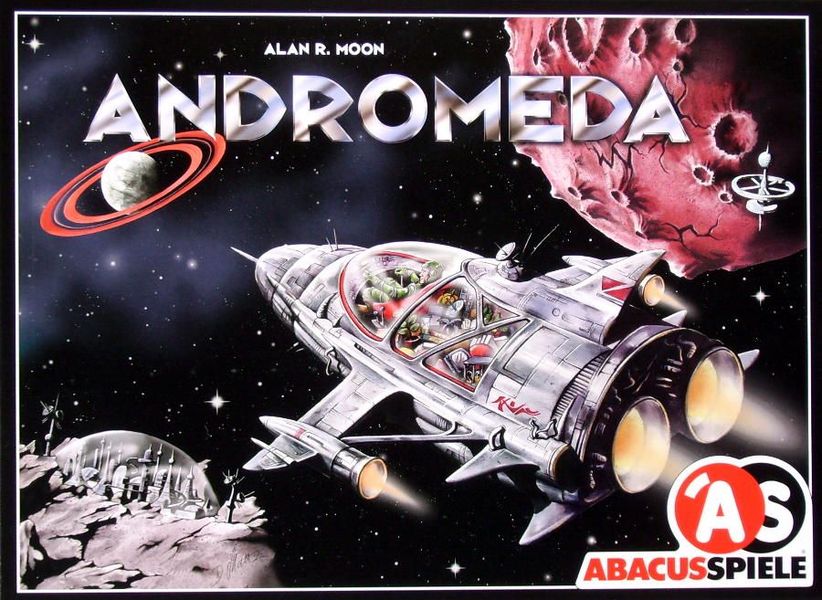Andromeda (1999) Board Game
Andromeda is a board game designed by Doris Matthäus and published in in 1999. The game is set in a science fiction universe where players take on the role of space explorers competing to establish dominance in the galaxy.
Game Components of Andromeda
How To Setup Andromeda
To set up Andromeda, each player selects a color and takes 26 cubes of that color, placing one cube on the first space of the spaceship development track and another on the first space of the technology development track. Players place four stations on Earth and one station on each of the other planets (two if only three players are playing). Additional cubes are placed on planets matching the cards dealt to each player. Each player is dealt nine cards, and the remaining cards form a draw pile.
Gameplay Mechanics and Game Objective
Mechanics
Game Objective
Player Experience
Andromeda offers a dynamic and strategic experience with a mix of luck and planning. Players must carefully manage their card sets, trade effectively, and make calculated risks to establish colonies. The game requires balancing short-term gains with long-term strategies, such as increasing hand size, advancing technologies, and positioning stations optimally.
Pros
Cons
Personal Thoughts on Andromeda
Andromeda is suited for players who enjoy strategic games with a blend of luck and planning. It is ideal for those who appreciate complex gameplay mechanics and are willing to invest time in learning and playing the game. The game’s theme and artwork will appeal to fans of space exploration and science fiction. However, it may not be the best fit for casual players or those seeking quick, simple games.
We are supported by our audience. When you purchase through links on our site, we may earn an affiliate commission, at no extra cost for you. Learn more.

